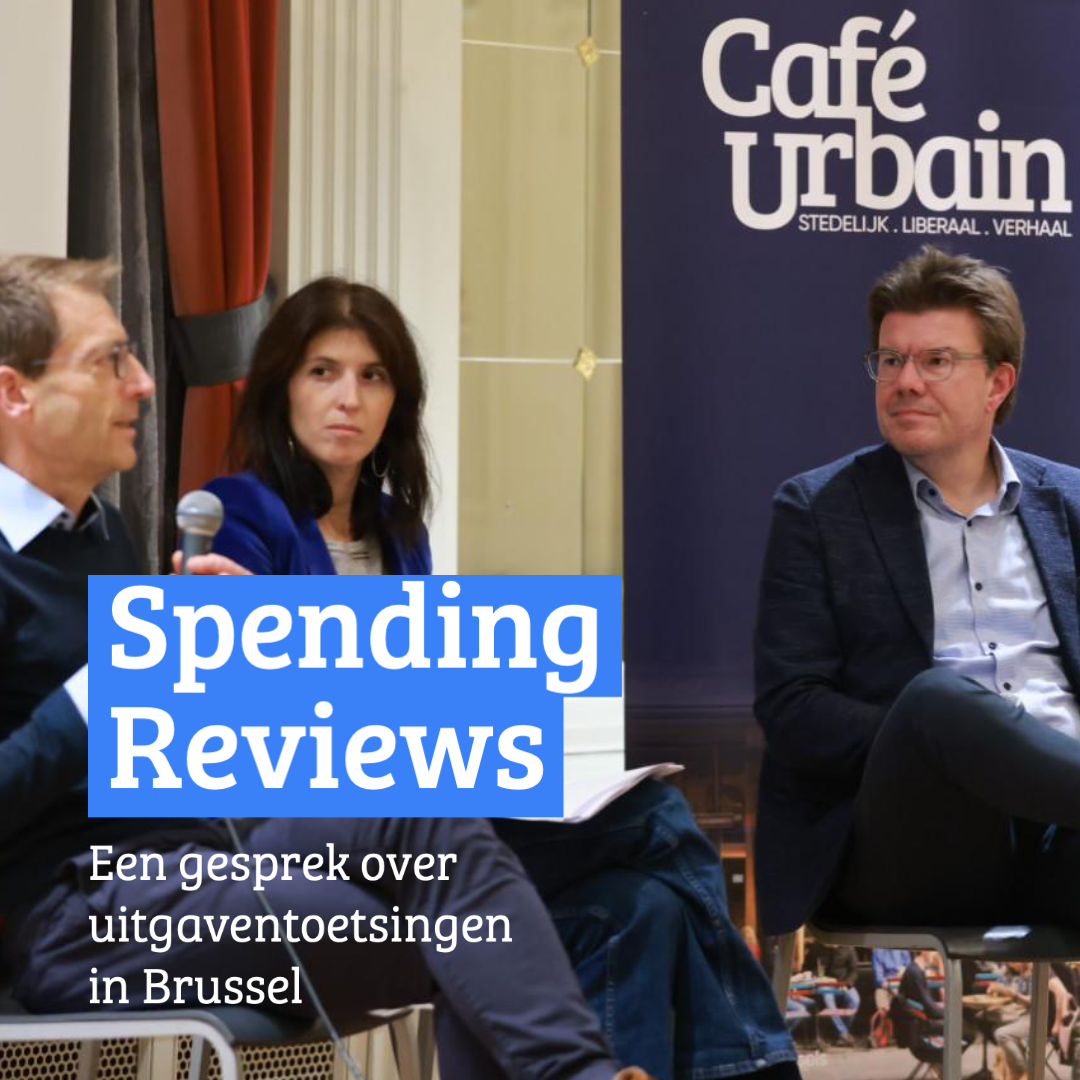Spending Reviews or a fiscal policy 2.0
Not sure it’s “the most wonderful time of the year,” but it’s definitely “that” time of the year. From mid- November to the end of December, the budget is discussed in the Brussels Parliament. For quite some time now, Sven Gatz (Open Vld), Minister of Budget, has been wanting to shift the focus from the tables to the method. Not to divert attention, but to have more control over the tables through that new method. On the one hand, everyone is focused on tiny budget reductions and increases, but on the other hand, people are worried about the total amount when all those budgets are added up. However, the link between both is not necessarily made. Minister Sven Gatz wants to shift the attention to the accounts, policy area by policy area, through spending reviews. What has actually been realized with these budgets? That is what truly matters. Every ministry should check the efficiency of their expenses. And that is exactly what spending reviews are: the evaluation of public spending. In March, Minister Gatz proposed the method in the relevant Parliamentary commissions (for more information, please read “Sven Gatz over de spending reviews: “Begroting aftoetsen op efficiëntie”: http:// openvldbrussel.be/Nieuws-2269 ). He had the Brussels budget reviewed by the European Commission (the PEFA analysis) and announced that the two first spending reviews were finished and could be presented (one on mobility, and one on social housing).
Social Housing
To make a long story short, and to illustrate the usefulness of spending reviews, let’s take a first look at the telling example of social housing. Instead of asking ourselves how many social homes can be built with a given budget, we should ask ourselves how many people can be taken off the social housing waiting lists by helping them with that same budget but in another manner (for more information, please read the article by Carla Dejonghe: “Spending review sociale huisvesting: “Publieke woningen bouwen of privéwoningen socialiseren”: http://openvldbrussel. be/Nieuws-2286). The study shows that, in the short, but especially also in the long run, more people are helped through social housing allowances (“sociale huurtoelagen”) and social rental agencies (“sociale verhuurkantoren”) than by building and managing public social housing. It all starts with the right question. Minister Sven Gatz is well aware that this instrument will not completely clear ideological discussions out of the way, but it does help to put them into perspective. The evaluation of efficient spending will become central, civil servants will be made accountable in their advices to the government, experts will be called upon to examine the policies, a multi-annual planning will be created, counter- proposals will be calculated, ... In other words: a chain of evaluation will be put in place and built into the policy.
Café Urbain
On the eve of the budget discussions (November 11), Open Vld Brussels invited Brussels Minister of Budget Sven Gatz, then Brussels Member of Parliament and current federal State Secretary for Budget Alexia Bertrand, and the Secretary General of the Flemish Department of Finance and Budget Koen Algoed. An evening of spending review discussions with a bite to eat and a drink proved to be more fascinating than it actually sounds. That is also the concept of Café Urbain, an event that is regularly organized by the Brussels liberals. Alexia Bertrand confirmed that, although there are a few exceptions, only the liberals seem to be interested in this topic in the Parliament. Ideally, the Court of Audit should take on that evaluation. That is legally also a task they have, at the service of the Parliament. She believes that we look at the budgets too much and too little at the accounts, which ultimately shows what part of its plans the government has actually been able to implement. For Sven Gatz, there is no taboo regarding which players should carry out the spending reviews. Ideally, every administration should execute such a reassessment (also known as a reconsideration or “heroverweging” in Dutch) of its operations, even before the elections.







